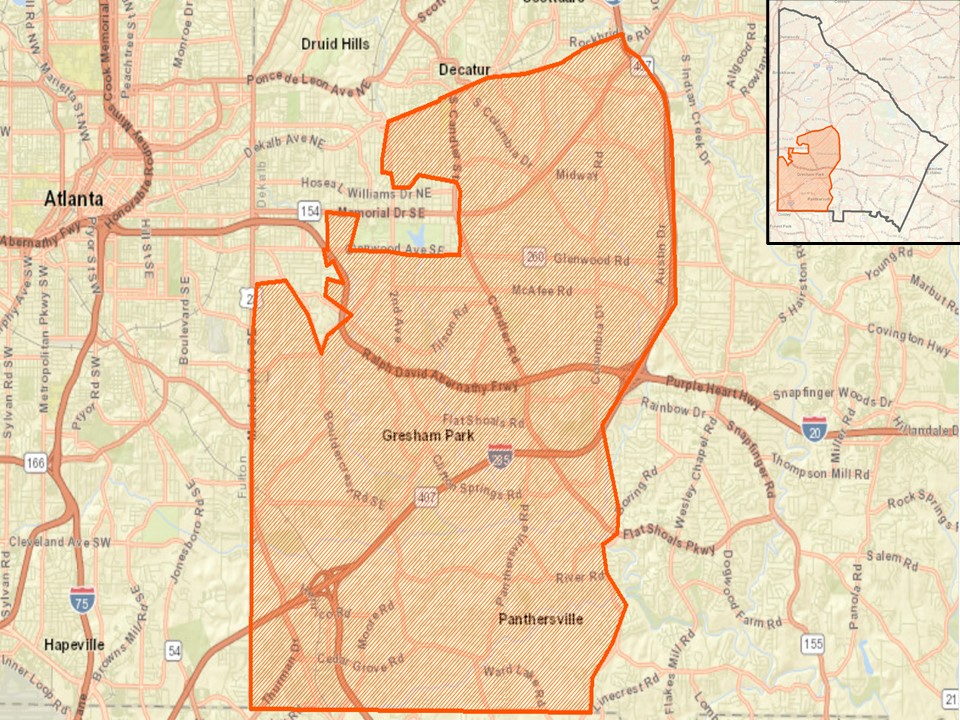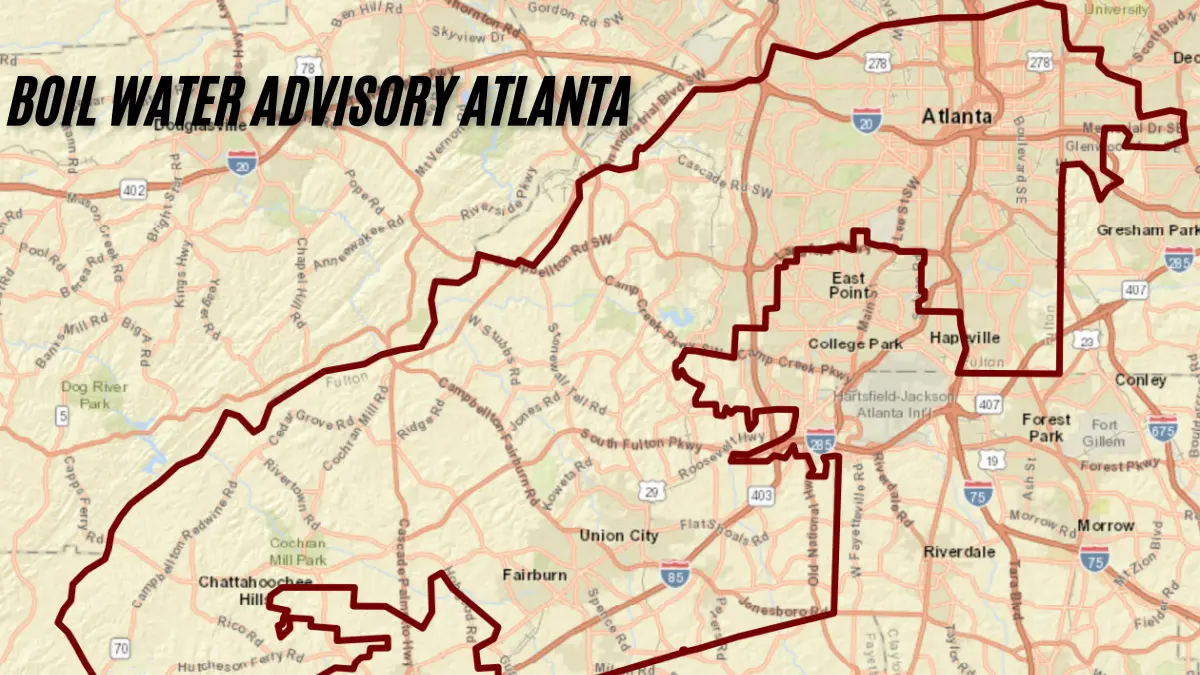Boil Water Advisory Atlanta Like many cities, Atlanta, Georgia, a central metropolitan hub known for its thriving culture and history, has occasionally faced challenges with its water supply. One such challenge is the implementation of a Boil Water Advisory Atlanta advisory, a precautionary measure taken when the safety of the public water supply is in question. This advisory serves as a crucial warning to residents, signalling that the water may be contaminated and that boiling it is necessary to ensure it is safe for consumption.
The nature of Boil Water Advisory Atlanta and how they affect daily life in Atlanta can vary depending on the cause and duration of the situation. Understanding the reasons behind such advisories, the health risks associated with unboiled water, and the appropriate steps to take during an advisory is essential for the well-being of residents.
What Is a Boil Water Advisory?

A Boil Water Advisory Atlanta is a public health measure issued by local water authorities or health departments when there is a concern that drinking water may be contaminated with harmful microorganisms or pollutants. The advisory directs residents to boil tap water before using it for drinking, cooking, brushing teeth, or any other activity where ingestion is possible. This step is necessary because boiling water kills most bacteria, viruses, and parasites that may be present.
Like in many cities, Atlanta’s water is typically treated and monitored regularly to ensure that it meets safety standards. However, certain events or conditions can lead to situations where the water is no longer guaranteed to be safe. These events might include infrastructure failures, natural disasters, chemical spills, or water treatment issues.
Causes of Boil Water Advisories in Atlanta
The causes of Boil Water Advisory Atlanta can range from natural occurrences to human error. For instance, heavy rainfall and flooding can overwhelm the city’s water filtration systems, leading to potential contamination from external sources such as sewage runoff. Other times, there may be a break or a pressure drop in the city’s water main, which can introduce contaminants into the system. In some cases, an issue at a local water treatment plant may prompt officials to issue a warning to protect public health.
The risk of contamination is heightened in situations where there is a loss of water pressure. When water pressure drops, it can create the potential for backflow, which may draw contaminants into the system. In these circumstances, the authorities may quickly issue a Boil Water Advisory Atlanta to prevent any harmful health effects. While the system usually restores pressure soon, residents must follow the advisory until it’s lifted to ensure safety.
Another common cause of advisories is the detected presence of bacteria, such as E. coli or coliform, in the water. These microorganisms can cause gastrointestinal illnesses and are often indicators of fecal contamination. If such bacteria are found in water, officials will issue an advisory to ensure that all residents boil their water before use, preventing potential illness.
The Importance of Boiling Water
The primary reason for issuing a Boil Water Advisory Atlanta is to prevent exposure to waterborne pathogens. Boiling water kills harmful microorganisms like bacteria, viruses, and parasites that may be present in contaminated water. These pathogens can lead to a variety of health issues, especially gastrointestinal diseases, which can cause symptoms such as diarrhea, nausea, vomiting, and dehydration. In some cases, especially for vulnerable populations such as the elderly, children, pregnant women, or individuals with weakened immune systems, the risks can be more severe.
Boiling water for at least one minute (or three minutes at higher altitudes) destroys most harmful microorganisms, rendering it safe for consumption. In some cases, water filtration systems may be used to purify the water, but boiling is one of the most effective and accessible methods for ensuring safety during an advisory.
What To Do During a Boil Water Advisory in Atlanta
When a Boil Water Advisory Atlanta is issued in Atlanta, it is crucial to follow the guidelines provided by local authorities. The first step is to stop using tap water for drinking or food preparation unless it has been boiled. Even if the water looks clear and smells normal, it can still harbour dangerous microorganisms that may not be detectable to the naked eye or nose.
To safely Boil Water Advisory Atlanta, residents should bring it to a rolling boil for at least one minute, ensuring that it reaches temperatures high enough to kill pathogens. This method is applicable for both tap water and water from other sources, such as well water, which may also be subject to contamination.
During a Boil Water Advisory Atlanta, other precautions should be taken in addition to boiling water for drinking and cooking. This includes using boiled or bottled water for brushing teeth, washing hands, and even bathing, if necessary. For activities such as washing dishes, it is advised to use hot, soapy water and then disinfect the dishes using a sanitizing solution.
Atlanta residents should also be aware that certain groups may require special precautions. For example, infants, older people, and individuals with compromised immune systems are more susceptible to the harmful effects of contaminated water. These individuals should take extra care in adhering to Boil Water Advisory Atlanta guidelines and may need to rely on bottled water for their hydration and hygiene needs.
What to Avoid During a Boil Water Advisory
While under a Boil Water Advisory Atlanta, there are several common mistakes that people should avoid to stay safe. One of the most important is to never assume that bottled water is unnecessary. Even if the advisory specifies that all water should be boiled, bottled water should still be considered an alternative for drinking and cooking, especially if access to boiling water is limited.
Residents should also avoid using water from any other non-recommended sources, such as natural bodies of water like rivers or lakes, as these can also be contaminated. This includes avoiding the use of unboiled water for pet consumption or bathing pets, as they, too, are vulnerable to waterborne illnesses.
In some cases, boiling water for extended periods can be a time-consuming task. While it is essential to stay safe, people should not attempt to cut corners by boiling water for less than the recommended time or using alternative heating methods that may not bring water to a high enough temperature to kill pathogens.
How Long Do Boil Water Advisories Last?
The duration of a Boil Water Advisory Atlanta can vary depending on the severity of the contamination issue and the time needed for the water system to be restored. In some cases, a boil water advisory may last just a few hours, while in others, it could extend for several days.
The city’s water utility, often in coordination with public health authorities, will typically issue updates during an advisory to inform residents of the status and when it is safe to stop boiling water. Once the problem is resolved and the water has been tested for safety, the advisory is lifted, and residents can resume normal water usage.
It’s essential to stay informed by following local news reports, official city notifications, or the water utility’s communication channels for any updates on the advisory status. Adhering to these updates ensures that residents can protect their health and quickly resume everyday routines once the advisory has been lifted.
Conclusion: Responding to Boil Water Advisories in Atlanta
Boil Water Advisory Atlanta serve as an essential public health measure, ensuring that the water residents rely on for drinking, cooking, and hygiene remains safe during times of contamination. Understanding what causes these advisories, the risks associated with contaminated water, and the necessary steps to follow are critical for protecting your health. By taking the proper precautions during an advisory and staying informed about the status of the situation, residents can minimize risks and continue with their daily lives once the advisory is lifted.
While Boil Water Advisory Atlanta can be inconvenient and disruptive, they are a necessary measure to ensure the safety and well-being of the community. Residents in Atlanta, and any city facing such advisories, should always prioritize health and follow official guidance until it is confirmed that the water is safe to use again.




